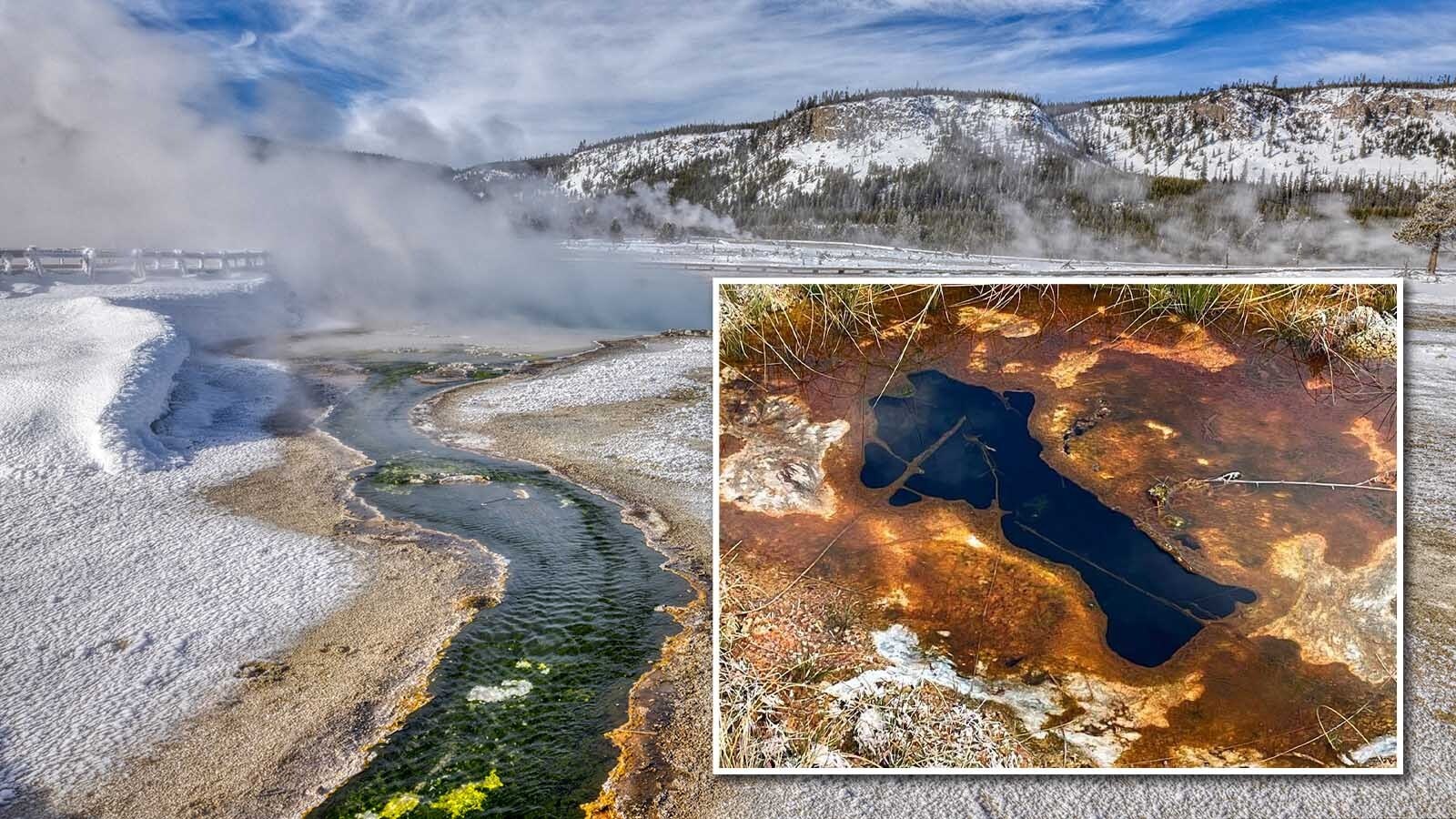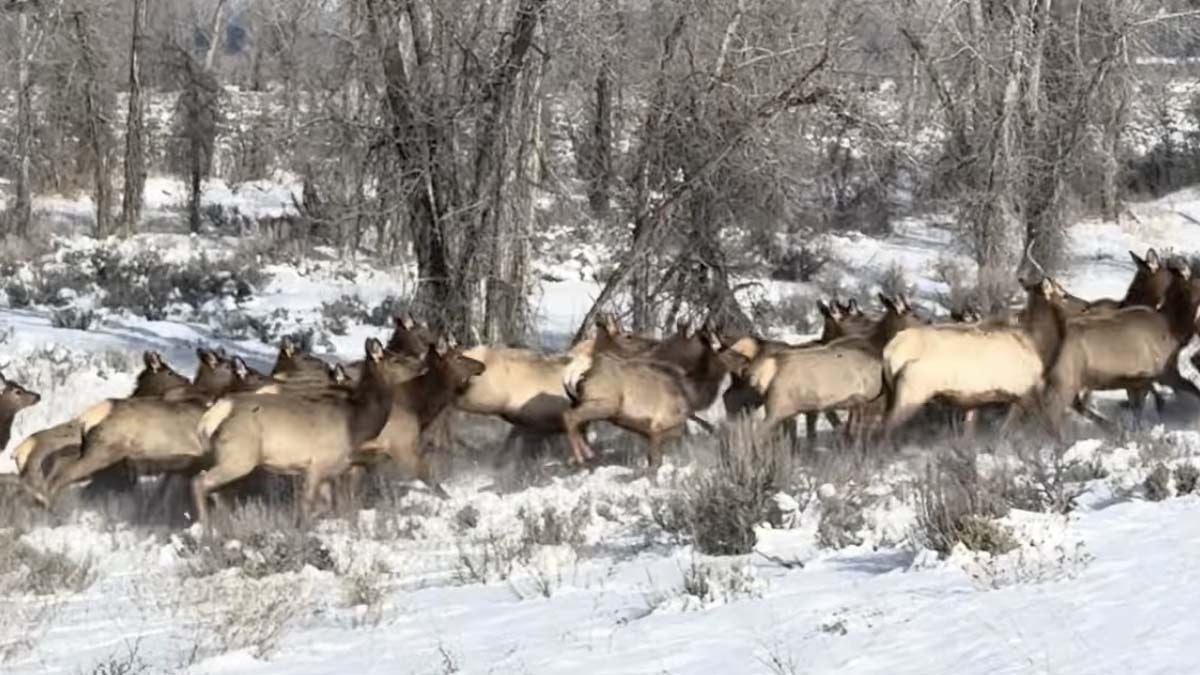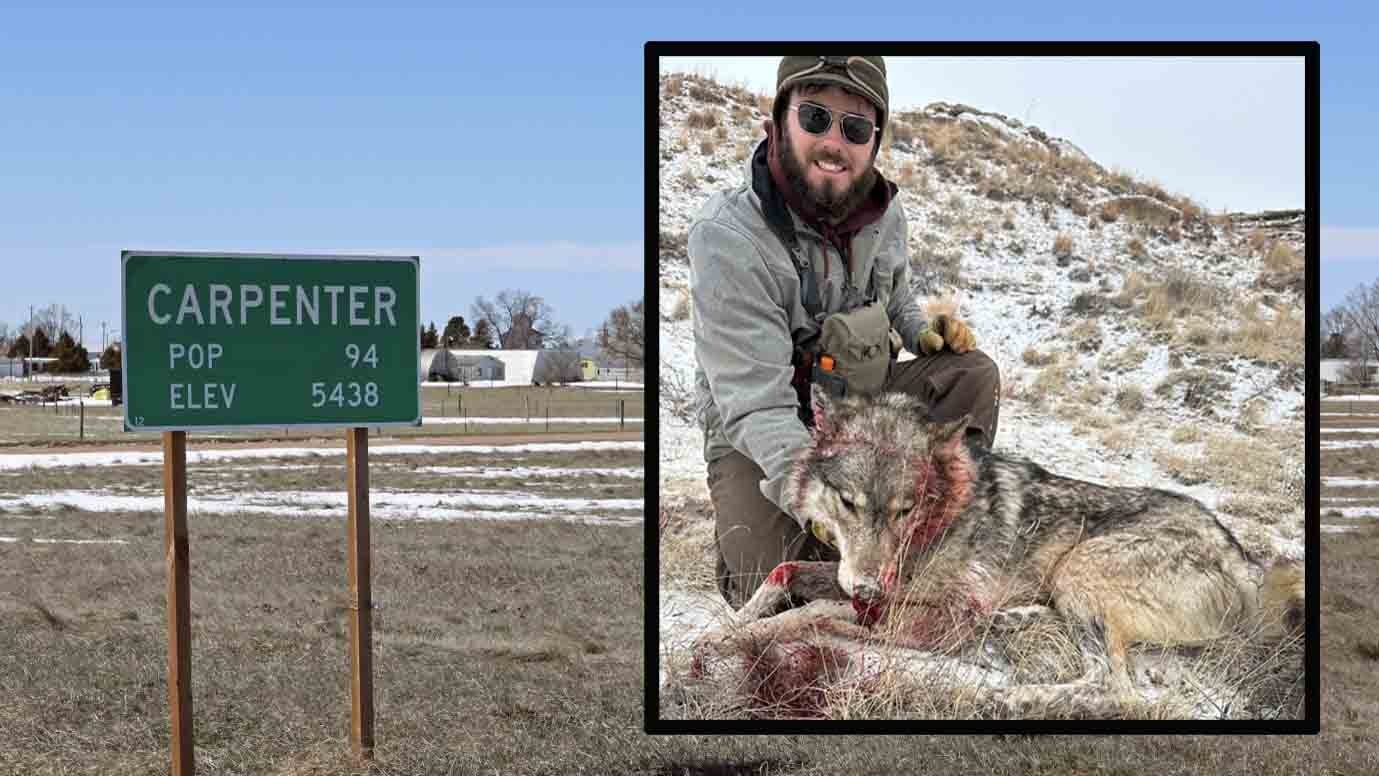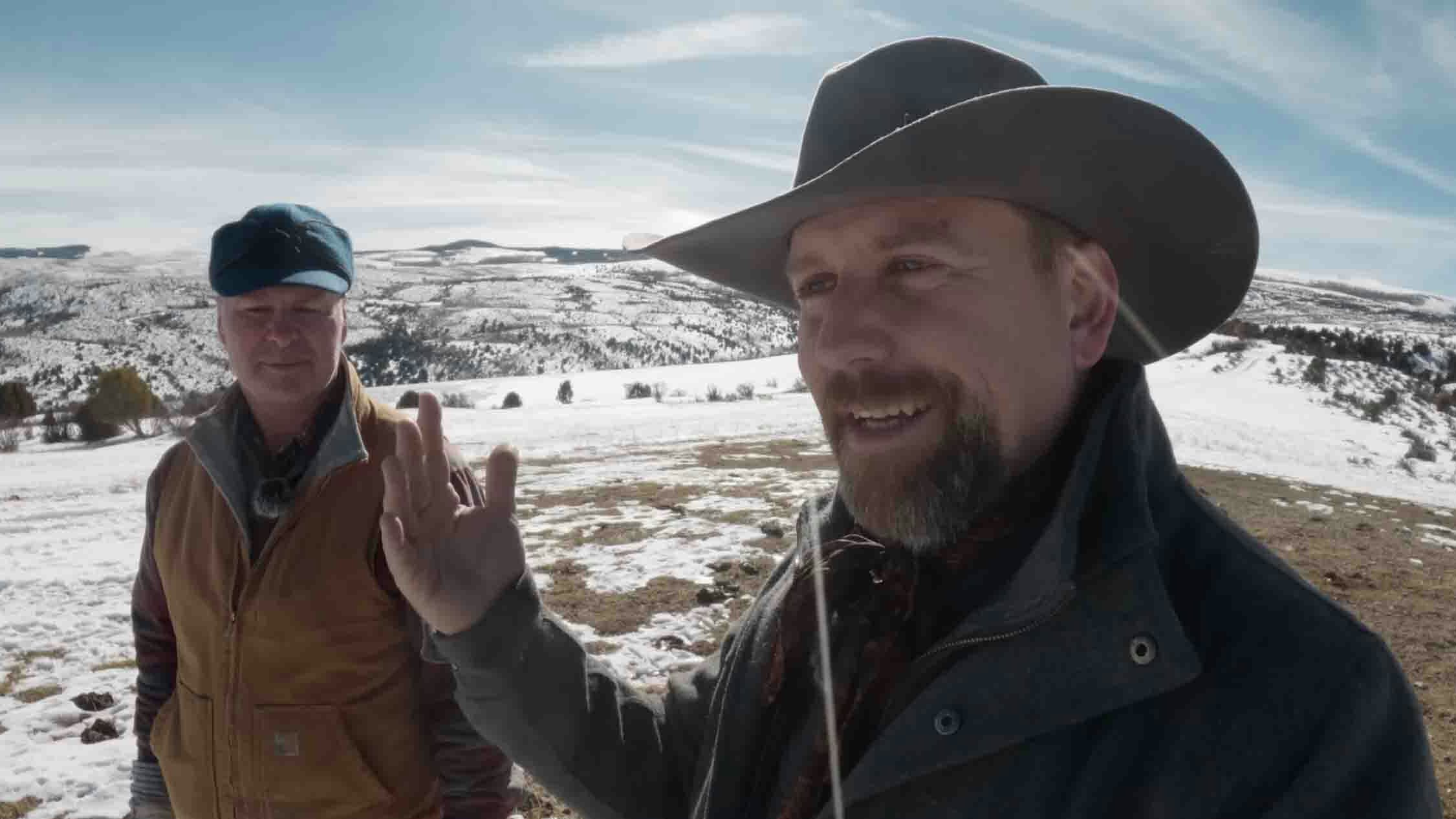The rifle shots of elk hunters’ rifles essentially ringing out like dinner bells for grizzly bears has been a grim humor trope for decades among northwest Wyoming residents.
“For bears, the sound of that shot says, ‘Gut pile! Dinner!’” rural Park County resident and retired Forest Service and Park Service ranger Richard Jones told Cowboy State Daily.
But what if hunters could buy grizzly tags and turn their rifles on the bears?
It’s been a longstanding argument among those who favor delisting grizzlies that opening hunting seasons for them in Wyoming, as well as possibly in Montana and Idaho, would instill the bears with a healthy fear of humans.
Jones lives in the North Fork between Cody and Yellowstone National Park, an area increasingly frequented by grizzlies.
It’s his view that while there’s no guarantee hunting grizzlies would make them more fearful of humans, it certainly wouldn’t hurt.
“If a bear is being stalked and predated upon in any fashion, it understands there’s danger. And that will make a bear, particularly a younger bear, more wary in the future,” he said.
Dead Bears Can’t Teach Others
Not everyone buys the notion that grizzly hunting would make them fear people. That includes Andrea Zaccardi, the Victor, Idaho-based carnivore conservation legal director for the Center for Biological Diversity.
“Grizzly bears are solitary animals. They don’t live in herds like elk or deer or pronghorn, where when you’re shooting at them, and (when) they see one their own die, all the others learn of that danger,” she told Cowboy State Daily.
“With a grizzly bear, if you shoot it, it’s not going be around to teach other bears that lesson,” she added.
Jones agrees, at least regarding individual bears, that’s a valid point.
“If you’re really hunting them, the bear only learns by getting killed, and that’s not going to get passed on to anybody else,” he said.
So, a greater fear of humans among grizzlies might not be a “direct result” of seeing other bears getting shot by hunters, he said. But again, being actively stalked by human hunters could cause a greater sense of dread toward people among bears in general.
Bears sometimes learn things, including bad habits, through their stomachs, federal biologist Frank van Manen told Cowboy State Daily.
And he agreed that in the immediate sense, any grizzly that falls to a hunter’s bullet can’t teach other bears that people are bad news.
“After all, a dead bear cannot 'learn' to be fearful of people. In the big scheme of things, access to human foods is one key reason why bears may become less wary of humans, so reducing such access would be more effective,” said van Manen, who is the supervisory research wildlife biologist for the U.S. Geological Survey’s Interagency Grizzly Bear Study Team.
Griz Tags Could Cost Up To $7,500
Grizzlies once roamed a huge swath of territory, including most of the Great Plains. But by the mid-20th century, they’d been pushed nearly to the brink of annihilation in the Lower 48. Only a scant few remained, holed up in the heart of Yellowstone country.
They were placed under federal endangered species protection in 1975, and have remained protected since. Their numbers have since ballooned, and there could be 1,000 or more in the Greater Yellowstone Ecosystem.
That has led many to push for having the bears delisted and managed by the states of Wyoming, Montana and Idaho. Wyoming Game and Fish Department officials have stated that grizzly hunting seasons would be part of the agency’s management plan.
Grizzly hunting tags would be extremely limited. And pricey, up to $7,500 for nonresident hunters.
Grizzlies Are Smart, For Sure
Delisting has been hotly debated. It seemed entirely possible last year that it could happen, but efforts have since fizzled.
But nobody is debating just how smart grizzlies can be. Several experts previously told Cowboy State Daily that they’re one of the most intelligent wild species in North America.
“Grizzly bears and all ursids (bear species) are, and have always been, considered intelligent, but only more recently have more quantified cognitive tests been conducted,” Wyoming Game and Fish Department large carnivore specialist Dan Thompson said at the time.
But whether grizzly bear smarts would translate into them being more fearful of humans if and when Wyoming starts issuing hunting tags remains an open question.

399 Takes Advantage Of Tourists
Jones said grizzlies have already demonstrated that they’re smart enough to use humans to their advantage in certain situations.
For example, the most famous bear of them all, Grizzly 399, gained visibility, and subsequently fame, by bringing her cubs near busy roadways in and around Grand Teton National Park.
And from 399’s perspective, there’s good reason for that, Jones said.
It’s not because she craves more social media followers. It’s because she figured out that mature grizzly boars (males), which can be apt to kill cubs that aren’t theirs, don’t like being around crowds, he said.
In sum, Grizzly 399 had the brains to figure out that she could use mobs of gawking tourists as human shields for her cubs.
And if 399 was smart enough to use people to her advantage, other grizzlies likely would be smart enough to understand that being around people is a huge disadvantage if hunting seasons are opened, Jones said.
Zaccardi said she’s skeptical that hunting could teach grizzlies such lessons.
“Logically and scientifically, it just doesn’t make sense,” she said. “I’d love a scientist or a policy maker explain to me how they think that’s possible. But so far, they haven’t been able to.”
Worried About Female Bears
Another concern that Zaccardi has about grizzly hunting is the number of sows, or adult female grizzlies, that might get shot.
The Center for Biological Diversity isn’t “opposed to hunting in general. We’re opposed to hunting carnivores, that people are probably not harvesting for food,” she said.
Even if seasons open, hunting female grizzlies with cubs wouldn’t likely be legal, and hunters would probably avoid shooting them, she said.
However, grizzlies have low reproductive rates and killing lone, mature females would hurt the specie’s long-term odds, she said.
Expert outdoorsman Guy Eastman of Park County has hunted grizzlies in Canada, and previously told Cowboy State Daily that determining an adult bear’s sex in the wild can be challenging.
“Proper bear identification is going to be very critical. You should shoot only a mature, or beyond mature large boar,” he said. “Guys are really going to have to take their time and learn the difference between a boar and a sow.
“You can look at facial features; boars tend to have blockier faces, sows can look more fuzzy.”
There are also differences in movement.
“A mature boar grizzly will walk with a swagger, he’ll swing his shoulders,” Eastman said. “Sows tend to move with more of a shuffle.”
A General, Long-Term Lesson For Bears
Summing things up, van Manen said trying to draw a direct line between people hunting grizzlies causing bears to fear humans is probably an oversimplification.
Instead, hunting might instill a broader lesson over time, adding to the reasons why grizzlies already avoid people, he said.
Whether hunting makes grizzlies fear people “is a question that has generated a lot of debate in wildlife science,” he said. “In short, there is little scientific evidence that hunting specifically instills fear of humans in bears. Bears do respond to human presence and human activities.”
Grizzlies can be good at avoiding people in general, he added. But thinking they’re scared of us might be projecting human emotions onto bears.
“Human activity in general instills an avoidance response and some studies have shown a physiological stress response when bears are closer to human activities, which humans might interpret as ‘fear’ — hunting, berry picking and other forms of backcountry recreation represent some of those activities. But the act of bear hunting in itself may not necessarily change a bear's behavior to be more wary,” van Manen said.
Even so, hunting might have an effect over time.
“Over the long term, hunting pressure can select for bears that show stronger avoidance behaviors of humans and pass that on to next generations,” he said.
Bears in Scandinavia really don’t like people, possibly because of a history of overly aggressive bear hunting there.
“For example, wariness of humans among brown bears in Scandinavia may be an adaptation resulting from the long-term human persecution that almost eradicated the species there in the 1930s,” van Manen said.
Mark Heinz can be reached at mark@cowboystatedaily.com.





